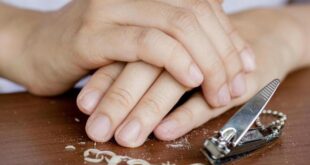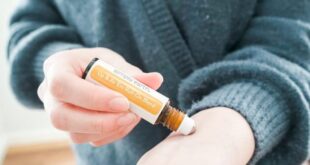How to get rid of drunk hiccups? This isn’t just a party problem; it’s a potential societal epidemic! From awkward dinner dates to disastrous karaoke nights, those pesky hiccups can ruin your night. This comprehensive guide dives deep into the science behind these involuntary spasms, offering a range of home remedies and, in dire circumstances, medical interventions. Prepare to banish those disruptive hiccups, whether you’re a seasoned party-goer or a first-time imbiber.
Understanding the triggers and mechanisms behind hiccups, especially those fueled by alcohol, is key. This guide breaks down the physiological processes involved, from the diaphragm’s involuntary contractions to the phrenic nerve’s role in the reflex. We’ll also debunk common myths and provide a clear comparison of various remedies, from the tried-and-true to the potentially problematic.
Understanding Hiccups

Hiccups, those involuntary spasms of the diaphragm, are a common and often frustrating experience. While usually harmless, persistent hiccups can be disruptive. Understanding the underlying physiology and potential triggers can help in managing and potentially preventing these brief but sometimes bothersome episodes.The hiccup reflex is a complex interplay of nerves and muscles, involving a specific pathway in the nervous system.
The sudden, involuntary contraction of the diaphragm, the primary muscle responsible for breathing, is the hallmark of this reflex. This contraction is accompanied by a characteristic “hic” sound.
Physiological Mechanisms of Hiccups
The hiccup reflex is initiated by the phrenic nerve, a crucial nerve in the respiratory system. This nerve, originating in the brainstem, sends signals to the diaphragm, instructing it to contract. When the nerve is stimulated, the diaphragm contracts forcefully and rapidly, followed by a closure of the glottis (the opening of the windpipe). This rapid closure produces the characteristic “hic” sound.
The cycle of contraction and closure repeats itself, causing the hiccup.
Causes of Hiccups
A wide range of factors can trigger the hiccup reflex. Some are relatively benign, while others might indicate an underlying medical condition. Alcohol consumption, for example, is frequently linked to hiccups. This is due to its effect on the nervous system, potentially stimulating the phrenic nerve. Other common triggers include sudden changes in temperature, swallowing air, eating too quickly, and certain medical conditions.
Role of the Diaphragm and Phrenic Nerve
The diaphragm is a large, dome-shaped muscle located at the base of the lungs. Its primary function is to facilitate breathing by contracting and relaxing, creating pressure changes that draw air into and expel air from the lungs. The phrenic nerve is responsible for transmitting signals to the diaphragm, initiating the muscular contractions necessary for respiration. These actions, when disrupted or stimulated excessively, can trigger the hiccup reflex.
Common Misconceptions Surrounding Hiccups
There are several common misconceptions about hiccups. One common belief is that holding your breath will stop them. While it might seem counterintuitive, holding your breath can actually exacerbate the issue, increasing pressure within the chest cavity and potentially triggering further spasms. Other misconceptions revolve around various remedies and the severity of hiccups.
Table Comparing Hiccup Triggers
| Trigger | Mechanism | Example |
|---|---|---|
| Alcohol | Stimulation of the phrenic nerve, possibly due to its effect on the nervous system | Drinking large amounts of alcohol, particularly quickly |
| Sudden Changes in Temperature | Stimulating nerve pathways in the throat and chest region | Exposure to cold air or a sudden temperature drop |
| Swallowing Air | Over-distention of the stomach, sending signals to the brain to cause the hiccup reflex. | Eating too fast, chewing gum excessively |
| Eating too Quickly | Stimulating the nerves in the throat and upper digestive tract. | Eating large meals quickly |
| Medical Conditions | Various neurological or gastrointestinal issues can cause prolonged hiccups | Nerve disorders, stomach problems |
Home Remedies for Drunk Hiccups: How To Get Rid Of Drunk Hiccups

Hiccups, a common involuntary spasm of the diaphragm, can be particularly bothersome when accompanied by alcohol consumption. While there’s no guaranteed cure for drunk hiccups, several home remedies might offer temporary relief. These methods often rely on stimulating the vagus nerve or inducing a change in body chemistry. It’s crucial to remember that these remedies are not a substitute for professional medical advice, especially in cases of severe or persistent hiccups.
Common Home Remedies
Many remedies for hiccups, regardless of intoxication, center on stimulating the vagus nerve, a crucial part of the nervous system that plays a role in controlling various bodily functions. This stimulation can sometimes interrupt the hiccup reflex. A variety of techniques can be used to achieve this stimulation, and these methods may be more effective when the body is relaxed.
- Water, Cold or Warm: Drinking a glass of cold or warm water quickly can sometimes stimulate the vagus nerve and disrupt the hiccup cycle. The change in temperature and the act of swallowing can provide the necessary stimulation.
- Sugar: Sucking on a sugar cube or eating a spoonful of sugar can sometimes help. The sweetness and the act of chewing and swallowing might trigger a response in the vagus nerve.
- Breathing Techniques: Holding your breath or practicing deep, slow breaths can influence the body’s response to hiccups. Slow, deep breaths can sometimes help to calm the nervous system and interrupt the involuntary spasms of the diaphragm.
- Lemon: Squeezing a slice of lemon into a glass of water and drinking it can sometimes trigger a response in the vagus nerve. The acidity of lemon juice might have a similar effect to sugar, influencing the nerve’s activity.
- Pressure Points: Applying pressure to certain points on the body, such as the area around the collarbone, may stimulate the vagus nerve and disrupt the hiccup reflex. The pressure can be gentle or moderate. However, these techniques might not always be effective.
Effectiveness and Safety Comparison
| Remedy | Effectiveness (Possible) | Safety (General) | Mechanism (Potential) |
|---|---|---|---|
| Water (cold/warm) | Moderate | High | Stimulates vagus nerve via rapid swallowing and temperature change. |
| Sugar | Low to Moderate | High | Stimulates vagus nerve via sweetness and swallowing. |
| Breathing Techniques | Low to Moderate | High | Calms nervous system, potentially disrupting hiccup reflex. |
| Lemon | Low to Moderate | High | Potential vagus nerve stimulation through acidity and swallowing. |
| Pressure Points | Low | Generally High (with caution) | Stimulation of vagus nerve through pressure on the nerve pathway. |
Note
* Effectiveness and safety are relative and can vary greatly between individuals.
Remedies to Avoid
- Excessive Alcohol Consumption: Drinking more alcohol will likely exacerbate the problem, making hiccups more frequent and prolonged.
- Spicy Foods: Spicy foods can irritate the digestive system, potentially leading to increased discomfort and, indirectly, to hiccups, particularly if the individual is already sensitive to them.
- Carbonated Drinks: Carbonated beverages can irritate the stomach lining and may worsen the symptoms, potentially exacerbating the hiccup reflex.
Applying Pressure Points Safely
Applying pressure to specific points can potentially stimulate the vagus nerve. A common pressure point is located slightly below the collarbone, on the side of the neck. Gently press with your fingers for a few seconds, or even a minute or so. This should be done in a calm environment. If the hiccups persist, seek medical advice.
Medical Interventions (for Severe Cases)
Severe hiccups that persist for extended periods or interfere significantly with daily life might require medical intervention. These interventions are generally reserved for cases where home remedies and other less invasive approaches have proven ineffective. Understanding the underlying cause of the hiccups is crucial for selecting the appropriate medical intervention.Medical professionals employ various strategies to address persistent hiccups.
These interventions aim to disrupt the involuntary nerve signals causing the spasms, thereby stopping the hiccuping. The choice of intervention often depends on the severity of the hiccups, the potential underlying medical conditions, and the patient’s overall health.
Medications
Medications are frequently employed to treat severe hiccups. Certain medications can suppress the nerve signals responsible for the hiccup reflex. This often involves using medications that have sedative properties or that affect the nervous system. Examples include anti-anxiety drugs or medications used to treat neurological conditions.Safety precautions for medication use include careful monitoring of the patient’s response, adherence to prescribed dosages, and awareness of potential side effects.
The doctor will consider the patient’s medical history and current health status when prescribing medication.
Intravenous Medications
In some cases, intravenous administration of medications might be necessary for severe hiccups. This method delivers medications directly into the bloodstream, allowing for a faster and potentially more effective response. The specific medication used and the dosage will depend on the patient’s specific situation and the judgment of the medical professional.Safety precautions for intravenous interventions involve careful monitoring of the patient’s vital signs, including blood pressure, heart rate, and oxygen saturation.
The administration process is performed by trained medical personnel in a controlled environment.
Electrical Stimulation
In certain cases, electrical stimulation techniques can be used to disrupt the nerve signals causing hiccups. These techniques might involve the use of a device that delivers mild electrical pulses to specific areas of the nervous system.Safety precautions for electrical stimulation include careful positioning of the stimulating device and close monitoring of the patient’s response. The procedure is typically performed by a medical professional experienced in such interventions.
Other Procedures
Other procedures, such as nerve blocks or the injection of certain medications directly into the nerves responsible for the hiccup reflex, are occasionally used for severe, persistent hiccups. These procedures are often more invasive than the previously mentioned methods and are typically employed only when other approaches have failed.Safety precautions for these procedures include careful consideration of potential complications, proper sterilization techniques, and close monitoring of the patient post-procedure.
The patient’s medical history and the judgment of the medical professional will dictate the appropriateness of these interventions.
Comparison of Interventions, How to get rid of drunk hiccups
| Intervention | Effectiveness | Potential Side Effects |
|---|---|---|
| Home Remedies | Generally less effective for severe cases | Minimal |
| Medications (oral) | Often effective, but may take time to work | Possible drowsiness, nausea, or other side effects |
| Intravenous Medications | Potentially faster acting | Risk of allergic reactions, fluid overload, or other complications |
| Electrical Stimulation | Potentially effective | Risk of discomfort, pain, or nerve damage |
| Other Procedures | Reserved for extreme cases | Higher risk of complications |
Role of a Doctor
A doctor plays a crucial role in managing hiccups, especially those related to alcohol consumption. They will assess the patient’s overall health, the severity of the hiccups, and the potential underlying causes. This comprehensive evaluation will inform the decision on the most appropriate course of action, whether it involves home remedies, medications, or more invasive medical interventions.A doctor can also rule out any underlying medical conditions that might be contributing to the hiccups.
In cases of alcohol-related hiccups, the doctor will address the underlying issue of alcohol consumption, provide guidance on managing alcohol intake, and monitor the patient’s recovery.
Closing Summary
So, there you have it—a comprehensive strategy to conquer those pesky hiccups, particularly after a night of revelry. From understanding the science behind the involuntary spasms to exploring effective home remedies and medical interventions, we’ve covered all the bases. Remember, prevention is always better than cure, so practice moderation, and you’ll likely never experience the agony of a persistent hiccup again! Now go forth and enjoy your celebrations, hiccup-free!
FAQ Insights
What if nothing works?
If home remedies fail to alleviate severe hiccups, immediate medical attention is crucial. Seek advice from a healthcare professional to rule out underlying medical conditions.
Are there any foods that worsen hiccups?
Spicy foods, carbonated drinks, and overly acidic foods can sometimes exacerbate hiccup episodes, particularly when combined with alcohol.
How long do hiccups typically last?
Most hiccups resolve within a few hours. However, persistent hiccups (lasting more than 48 hours) warrant a visit to a doctor.
Can stress cause hiccups?
Stress, anxiety, and other emotional factors can trigger hiccups. While not directly linked to alcohol consumption, it’s important to consider the interplay of various factors.
 Nimila
Nimila



